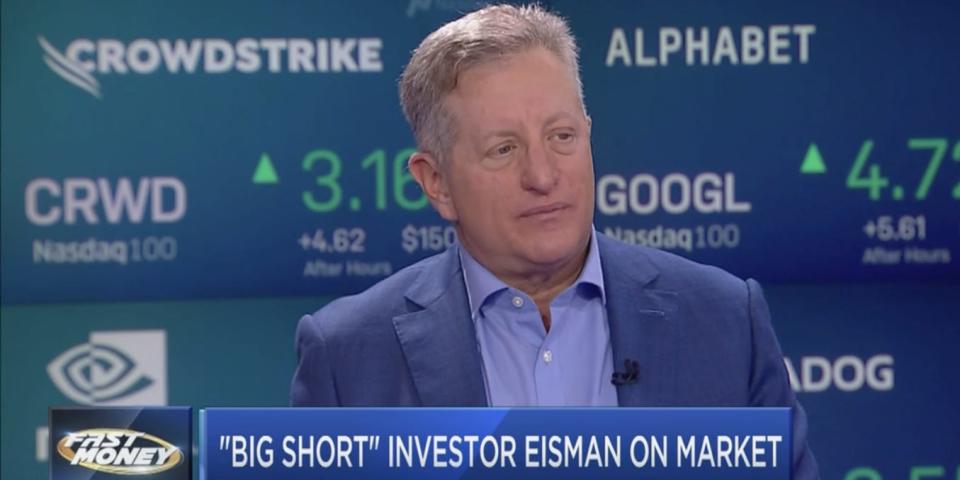
-
“Big Short” investor Steve Eisman said he saw no reason for investors to sell their shares.
-
He said the 2023 stock market rally will continue as long as the US economy remains as strong as it is.
-
“The Fed keeps raising rates; it hasn’t had an impact. Until it has an impact, we’ll keep moving forward,” he said.
Big Short investor Steve Eisman said the sizzling stock market rally of 2023 could continue as long as the US economy remains strong.
“It’s starting to get a little manic. But it might last a little longer because as long as the economic data is okay, I don’t see why people are going to sell their stocks,” Eisman said in an interview with CNBC. THURSDAY.
Eisman was likely referring to recent economic data suggesting the United States is in better shape than most Americans think.
Inflation is cooling rapidly, the labor market remained robust with low unemployment and sustained gains in equities helped push the S&P 500 into a bull market.
This year’s stock market rally has been strongly boosted by investor enthusiasm for the rise of artificial intelligence, with investors piling into popular tech stocks like Apple, Microsoft and Nvidia.
“I would say I’m surprised how much the market has grown this year. I really am,” Eisman said.
The stock market remained in turmoil even as the Federal Reserve extended its interest rate hikes – which began in March 2022 – to a staggering 500 basis points in an effort to keep inflation under control.
“The data is still very, very strong. The Fed continues to raise rates, it hasn’t had an impact. Until it has an impact, we’ll keep moving forward,” Eisman said.
Eisman said he is currently focusing on investments in technology and infrastructure, while avoiding banking stocks following the turmoil that erupted in the financial sector earlier this year.
“Regionals are problematic because they keep losing deposits and have to keep shrinking their balance sheets. So for regionals, I don’t think earnings have bottomed out and I wouldn’t even think about buying them until what I think they had,” he said, referring to regional U.S. banks.
Read the original article on Business Insider

